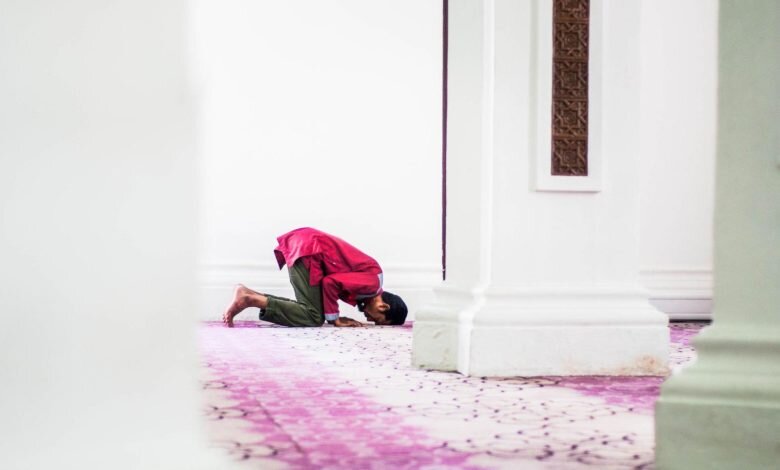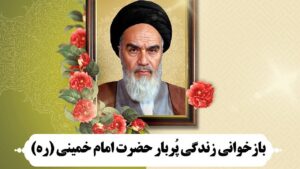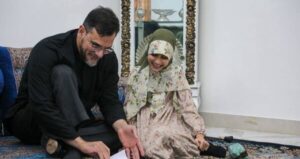to report Missionary thought and culture base, Mustafa Nozri, a researcher in the field of religion and politics, wrote: In the summer of 2023, the city of Ankara in Türkiye hosted the second edition of the “Al-Shabaab Al-Alam Al-Islami” conference. About 600 young activists from 44 different countries participated in this three-day conference. From Iran, a team of four members of Emmet Vahdeh Student Union activists participated in the conference to present a report on the international and non-governmental activities of Emmet Vahdeh Union.
The event included various sections, including speeches by prominent figures of the Islamic world, a special section for Palestine, training workshops for the management and leadership of Islamic NGOs, and the presentation of the experiences of NGOs from different countries. About prominent figures present in the conference, we can mention people like Dr. Tariq Sweidan, Abdul Razzaq Makri and Abu Zaid Idrisi. Dr. Tariq Sweidan is a Kuwaiti-born Islamic dawat who is currently one of the most inspiring and effective figures for the new generation of Islamic movement activists. Abouzeid Idrisi, a Moroccan thinker and one of the greatest defenders of the Palestinian issue, gave a speech entitled “The role of youth in the Islamic renaissance”.
Abd al-Razzaq Makri, an Islamic thinker and the leader of the Algerian Peace Society, the largest Islamic party in Algeria, spoke about the role of youth in the change of civilization. Of course, it should be noted that the most important part of the conference was the informal part where, on the sidelines of the programs, young Muslim activists from Muslim countries networked and transferred experiences and discussions with the most important Islamic activists of their age in other countries. In the following, the author, who attended this conference, shares with the audience some important points about the current situation of the young generation of Islamic movements under the pretext of presenting a report of his observations.
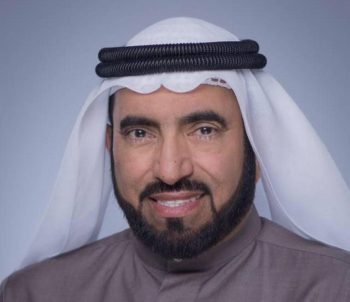
Dr. Tariq Sweidan is a Kuwaiti-born Islamic dawat who is currently one of the most inspiring and effective figures for the new generation of Islamic movement activists.
One of the most important issues that a Muslim who is more or less aware of the history of contemporary religious reform will face when facing such an event is the degree of connection between its central speech and the historical tradition of the current of religious reform. Regardless of this issue, the way the hosts have tried to hold the event “dignified”, precisely in the form of an official European conference, in the splendor of the conference, including reception and food, booking an expensive hotel for the guests and issues of this kind; The most important issue was the central speech of the content of lectures and programs. In addition to the formal elements of the conference, with a brief look at the program brochure, the list of speakers, the titles of the speeches, and then sitting at the opening speech of Tariq Sweidan entitled “Strategic Leadership in Youth Founders”, it quickly becomes clear to the audience that the central speech of the event is very close to individualistic literature. American success psychology. Also, the dominant keywords in the speeches were words such as “leadership”, “strategic”, “success” and their families.
Now after hearing a lot of lectures about leadership[۱] and financing Islamic organizations and listening to the Palestinian nasheeds from the high-quality speakers of a high-class hotel, a Muslim who has made a short turn in the history of recent hundred-year Islamic revival-reform movements must ask himself an important question: “What exactly is happening?” Is it?
If we examine the key words of the speech of the 20th century religious reform and its representatives, we will probably stop at words such as justice, government, colonialism, struggle, civilization and power and their families. But what happens that in the new century, in a conference that has tried to gather the most important young activists of Islamic countries, not a single sentence is heard about poverty, economic justice or the issue of government, and instead we see the brilliance of the celebrity-inviters. Just like MBA summer school teachers or startup consultants, they talk about the leadership and effective management of their organizations for the youth of Islamic countries with individualistic literature. Or what if the model type and perfect example of the Muslim activist of the 20th century is the “intellectual-fighter” type who uses a weapon – or a pen that has been sharpened to the size of a weapon – in paying and tying six- Dang, the dimensions of life with his Muslim identity, have dazzled everyone’s eyes. He is an “inviter-influencer” who has managed to attract hundreds of thousands of followers on Instagram with his beautiful face, good voice and influencer’s intelligence. Naturally, you would guess that the end of his art is to fill ten-second Instagram or Tik-Tok clips in a stunning natural landscape or well-carved mosques, in which he recites one or two verses of the Koran or a religious statement in a beautiful voice and melts the hearts of all his followers. takes If we raise one of the Egyptian, Iranian or Algerian fighters of the 20th century from the grave and bring him to this conference, he will undoubtedly be “horrified” by seeing the scene of influencers-inviters and more importantly by seeing the intensity of the audience’s applause and their collective admiration. And he thinks to himself that their Quran has become different from the Quran of our seventies?
Now, after listening to a lot of speeches about the leadership and financing of Islamic organizations and listening to the Palestinian nasheeds from the quality speakers of a high-class hotel, a Muslim who has made a short turn in the history of the recent hundred years of Islamic revival-reform movements must be aware of himself. Ask an important question: “What exactly is happening?”
The painful answer that we have to give to these fighting brothers and sisters who rose from the grave is that, unfortunately, the Quran has not changed. But what is more important – and we must say much more important after seeing these scenes – than the sacred text is playing a role, is the social reality that dominates the text and the reader of the text. It is the Eurocentric spirit that has been ingrained in us since a hundred years ago and it seems that not only has it not gone out, but it has settled down hard in our souls. Ahmed Fardid is quoted as saying “our history is a footnote to the history of the West”. Perhaps by seeing such moments, the depth of this statement and the depth of the Europeanization of Islamic societies will become more clear.
Islamist thinkers and intellectuals of the 20th century were mostly educated in Europe. They spent the sixties and seventies, in the middle of the independence movements of their countries, in Europe where the critical current of intellectuals was at its peak. The days when the character of “total intellectual” still had meaning in Europe and the Frankfurt school was forming its opinions and attacking the “one-dimensional human” and “alien” developed in the late capitalist society and showing its “distortion” and the state It was his “nausea”. In this situation, the young Muslim of the third world witnessed that some of his western masters also opened their tongues to criticize the current situation in Europe, and of course, it was still an era in Europe, the era of great narratives and ideologies – with a positive charge – with confidence. He breathed more and talked about “returning to himself”.
But it seems that times have changed today. It can be said that exactly the opposite of the European generation and the humanities studied by the founder, the new generation of Islamic activists, mainly migrated to America and their fields of study were technical-engineering fields.[۲]. In addition to the fact that the study of technical fields and the distance from the humanities leaves less opportunity for a critical look at the West and its economic system, these new “engineers-inviters” of ours have experienced and lived a very special period of American history: post-America. The collapse of the Soviet Union, America at the end of history and the world’s single hegemon, Silicon Valley America and extreme individualism[۳]and finally, America in the age of neoliberalism.
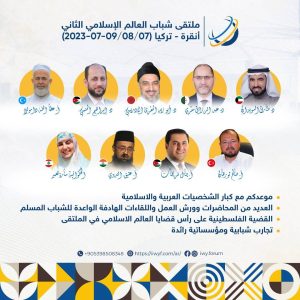
Probably, the presence and experience of adolescence and youth in this America – America, which in the 20th century, if individualism and enterprise and the land of dreams, had at least one Keynesian government and several anti-Vietnam war movements, still had concepts such as public good, justice and, in short, a ” “collective narrative” believed, but it does not have the same today – for these engineer-inviters, it basically creates another Islam. Basically, it makes many passages of the text bold for them, and more importantly, many passages are dimmed. Faded voices that were the central point of the screams of the previous generation.
If Hasan al-Banna wrote an introduction to the book of economic justice by Jodh Al-Sahar, if the Muslim Brotherhood took serious charity and welfare measures, if Seyyed Qutb wrote about social justice in Islam, if in the literature of the pro-government leader of the Iranian revolution, the word justice was used as much as the word government. was going[۴] And finally, if the important legacy of the founders of the revival movement in the 20th century, warning from the West as a whole and asking for “organization” and “system” to “recreate the nation”[۵]” and “returning to oneself” and in short it had a perspective of “wholeness” and the creation of “Islamic society”, the new generation of Muslim activists today is looking for leadership, management and shaping of “Islamic startup” and without any particular pessimism towards being oriented These “tools” and the nature of the economic system, in order to fulfill their Islamic responsibility, they are establishing an Islamic school with a tuition fee of 70,000 dollars per year![۶] Or he is successful in making Muslim girls veil on “Instagram” and becoming an influencer. And the terrible aspect of the problem is that he feels himself along the tradition of religious reform and calls Hassan al-Banna and his likes as his intellectual descent.
We must go back and read deeply all these historical changes and super-ruptures in the course of religious reform – in thought and action – and finally ask ourselves bravely what is the central core of the book and tradition, which paves the way for such different and distant interpretations. does it provide And in response to this question, two more conclusions cannot be drawn.
Or we should conclude that the book and the tradition are like a wax devoid of meaning, which can be any color and has no other properties other than “opium” to make any black social text tolerable. The air bulb of Central Europe has been embedded in our bodies for more than the 20th century. And it has sunk so deep that today Islam has become like a young and poor child by its “invite-celebrity” commentator, who bows every time to welcome a classy guest who has come to their house, and every moment puts on a dress and makes himself look beautiful. It makes noise and in fact it is nothing.
Or if we do not believe in such a thing and we find a true, original, missional and core message in the text, we must conclude that “the era of colonialism has not yet ended” for the entire Islamic world. We should stand up and impeach all these “ultra-westernized” and “ultra-oriental” interpretations in the court of the book’s central concepts and, along the tradition of Islamism, use the book for “social role-playing” and to be placed in the context of life – not just an individual. – let’s read social and – even though today with the help of broad and long and featureless organizations responsible for “Islamizing everything” adding the suffix of Islamization to everything is quite disgusting and It has become disappointing – instead of “modernizing Islam”, let’s talk about “Islamizing modernity” and indigenous modernity.
Today, the new generation of Muslim activists is looking for leadership, management and shaping of “Islamic startups” and without any particular pessimism about the directionality of these “tools” and the nature of the economic system, in order to fulfill their Islamic responsibility, they are establishing an Islamic school with tuition fees. 70 thousand dollars a year! Or he is successful in making Muslim girls veil on “Instagram” and becoming an influencer.
And it is very clear that today the work of a committed Muslim who thinks about “identity” and “self” and “Islam as a whole” will be more difficult than all previous generations. Because Marx and Sartre and the Frankfurt School and the alternative macro-narrative and the like don’t shine much in front of the stunning face of the new neoliberal Europe, and this time the Muslim of the Third World, in order to follow this path, cannot cheat anyone. Now we have to wait and see in the midst of blind jihadist Salafism and these tall and loud Instagram celebrity-inviters, a trend will arise to extend the tradition of Islamic revival, which has always thought about the self and the return, and of course, “which self”?
[۱] Leadership
[۲] For example, consider Tariq Sweidan as a typical example.
[۳] Ultra-Individualism
[۴] Source: advanced search in Imam Khomeini’s book. Imam Khomeini’s portal: In total, the word justice is used 150 times and the word government is used 148 times in the whole book.
[۵] The term is Sayyid Qutb
[۶] With the latest educational facilities and theories in the world! To educate the most capable – of course and the most individualistic – Muslims in the world
منبع: www.khabaronline.ir

